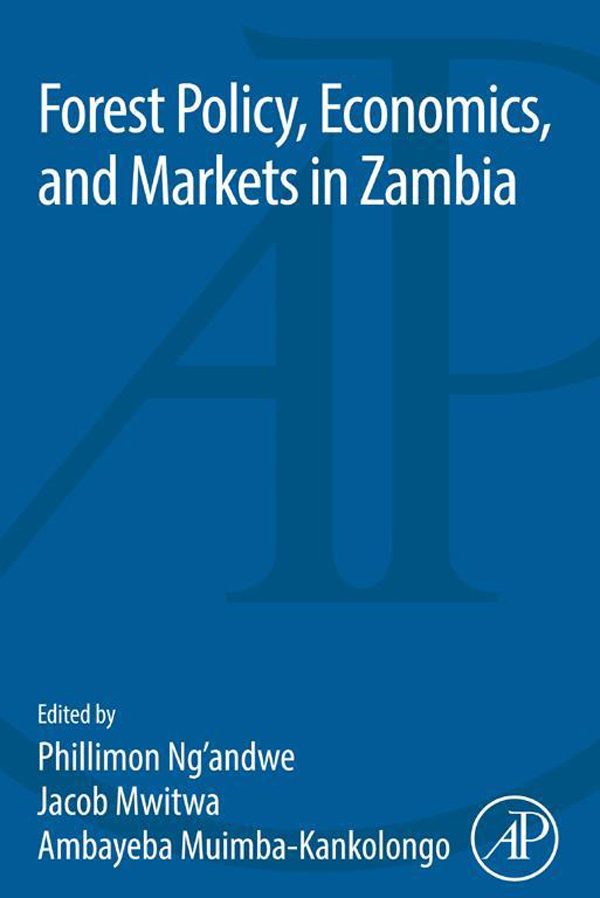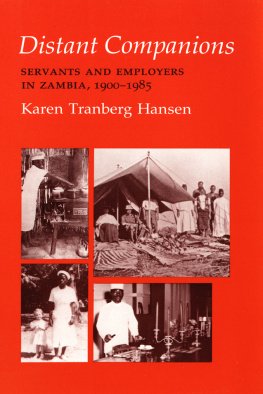Ngandwe Philimon - Forest Policy, Economics, and Markets in Zambia
Here you can read online Ngandwe Philimon - Forest Policy, Economics, and Markets in Zambia full text of the book (entire story) in english for free. Download pdf and epub, get meaning, cover and reviews about this ebook. year: 2015, publisher: Elsevier Science & Technology, genre: Politics. Description of the work, (preface) as well as reviews are available. Best literature library LitArk.com created for fans of good reading and offers a wide selection of genres:
Romance novel
Science fiction
Adventure
Detective
Science
History
Home and family
Prose
Art
Politics
Computer
Non-fiction
Religion
Business
Children
Humor
Choose a favorite category and find really read worthwhile books. Enjoy immersion in the world of imagination, feel the emotions of the characters or learn something new for yourself, make an fascinating discovery.

- Book:Forest Policy, Economics, and Markets in Zambia
- Author:
- Publisher:Elsevier Science & Technology
- Genre:
- Year:2015
- Rating:3 / 5
- Favourites:Add to favourites
- Your mark:
- 60
- 1
- 2
- 3
- 4
- 5
Forest Policy, Economics, and Markets in Zambia: summary, description and annotation
We offer to read an annotation, description, summary or preface (depends on what the author of the book "Forest Policy, Economics, and Markets in Zambia" wrote himself). If you haven't found the necessary information about the book — write in the comments, we will try to find it.
Forest Policy, Economics, and Markets in Zambia — read online for free the complete book (whole text) full work
Below is the text of the book, divided by pages. System saving the place of the last page read, allows you to conveniently read the book "Forest Policy, Economics, and Markets in Zambia" online for free, without having to search again every time where you left off. Put a bookmark, and you can go to the page where you finished reading at any time.
Font size:
Interval:
Bookmark:

- Tables in Chapter 1
- Tables in Chapter 2
- Tables in Chapter 3
- Tables in Chapter 4
- Tables in Chapter 5
- Figures in Chapter 1
- Figures in Chapter 2
- Figures in Chapter 3
- Figures in Chapter 4
- Figures in Chapter 5
Edited by
Phillimon Ngandwe
Jacob Mwitwa
Ambayeba Muimba-Kankolongo
School of Natural Resources, Copperbelt University, Kitwe, Zambia

Academic Press is an imprint of Elsevier
125, London Wall, EC2Y 5AS
525 B Street, Suite 1800, San Diego, CA 92101-4495, USA
225 Wyman Street, Waltham, MA 02451, USA
The Boulevard, Langford Lane, Kidlington, Oxford OX5 1GB, UK
Copyright 2015 Elsevier Inc. All rights reserved.
No part of this publication may be reproduced or transmitted in any form or by any means, electronic or mechanical, including photocopying, recording, or any information storage and retrieval system, without permission in writing from the publisher. Details on how to seek permission, further information about the Publishers permissions policies and our arrangements with organizations such as the Copyright Clearance Center and the Copyright Licensing Agency, can be found at our website: www.elsevier.com/permissions.
This book and the individual contributions contained in it are protected under copyright by the Publisher (other than as may be noted herein).
Notices
Knowledge and best practice in this field are constantly changing. As new research and experience broaden our understanding, changes in research methods or professional practices, may become necessary.
Practitioners and researchers must always rely on their own experience and knowledge in evaluating and using any information or methods described herein. In using such information or methods they should be mindful of their own safety and the safety of others, including parties for whom they have a professional responsibility.
To the fullest extent of the law, neither the Publisher nor the authors, contributors, or editors, assume any liability for any injury and/or damage to persons or property as a matter of products liability, negligence or otherwise, or from any use or operation of any methods, products, instructions, or ideas contained in the material herein.
ISBN: 978-0-12-804090-4
British Library Cataloguing-in-Publication Data
A catalogue record for this book is available from the British Library
Library of Congress Cataloging-in-Publication Data
A catalog record for this book is available from the Library of Congress
For Information on all Academic Press publications visit our website at http://store.elsevier.com/

Mathew K. Banda , Department of Computer Science, School of Mathematics and Natural Sciences, Copperbelt University, Kitwe, Zambia
Nkandu Kabibwa , Central Statistical Office, Lusaka, Zambia
Ambayeba Muimba-Kankolongo , Department of Plant and Environmental Sciences, School of Natural Resources, Copperbelt University, Kitwe, Zambia
Jacob Mwitwa , Department of Plant and Environmental Sciences, School of Natural Resources, Copperbelt University, Kitwe, Zambia
Phillimon Ngandwe , Department of Biomaterials Science and Technology, School of Natural Resources, Copperbelt University, Kitwe, Zambia
Jegatheswaran Ratnasingam , Faculty of Forestry, University Putra Malaysia, Serdang, Selangor, Malaysia
Obote Shakacite , Department of Plant and Environmental Sciences, School of Natural Resources, Copperbelt University, Kitwe, Zambia
Litia Simbangala , Central Statistical Office, Lusaka, Zambia
James C. Tembo , Department of Biomaterials Science and Technology, School of Natural Resources, Copperbelt University, Kitwe, Zambia
Managing Director Frightone Sichone, Zambia Forestry and Forest Industries Corporation Limited, Ndola, Zambia
It is widely and generally recognized that the value of forest for life, and the potential benefits and solutions they bring to mankind are enormous. Forests sustain livelihoods, host biodiversity, help stabilize the climate, provide sustainable wood materials, contribute to greening the environment, protect water sources, and provide foods, medicines and many other non-wood forest products. At the same time, forests are not only under threat from deforestation and forest degradation, but also from fires, pests, and diseases. Historically, how people interact with forests has been a reflection of our complex and at times contentious relationship with our natural environment. Forests contribute directly and indirectly to poverty reduction by providing jobs and incomes for rural communities in the country. It is also clear that despite different classifications of forest vegetation in the country, a common phenomenon has been noticed: The communities dependence on the forest for their survival.
Many writers in the past have recognized forests as being valued largely for their environmental benefits. However, the authors of this book have endeavored to demonstrate the equally important role of both wood and non-wood forest products in providing economic, social, and cultural benefits to the people in many of their geographical locations in the country. The researchers findings which comprise this publication draw upon diverse experiences from around the country, reflecting on the many ways in which people deal with production, marketing, and trading in wood and non-wood forest products.
This publication is not a simple amalgam of writings and articles on the subject. It is virtually a complete, new and well thought out presentation which depicts the correct realities of peoples interaction with the forests. This first edition has been written particularly with the aim of providing insightful information to those who study forestry, those who sustain their livelihoods through interaction with the forest and those who come across wood and non-wood forest products in pursuit of social, economic, and cultural endeavors.
The book has provided a concise and precise overview of the Forestry sector in Zambia and exposes the inadequacies in the forest policies and lacunae in the legal framework, which in most cases, appear archaic and out of touch with emerging issues in the sector, such as climate change, carbon management and trade, forest and timber certification, among others. However, given the life and daily endeavors of mankind, it is not every mans action or social interaction with nature which could be regulated by formalized or enacted laws such as the Forests Act and its related subsidiary legislation. Achieving sustainable forest management solutions ultimately require a process of dialogue and shared learning. This publication contributes to such a process by bringing together the challenges faced in the management of forests and the best practices from the Government and rural communities.
The learned authors of this publication have articulately blended the forest activities and strategies in both natural and exotic forest plantations. The contribution of industrial plantations, which are largely managed by the Zambia Forestry and Forest Industries Corporation Limited (ZAFFICO), to the countrys wood industry, cannot be overemphasized. ZAFFICOs strategy has been revised and it is tailored towards enhancement of annual replanting and expansion of forest plantations in other areas outside the Copperbelt Province in order to ensure sustainable wood supply in the country. One of the biggest challenges of the future lies in the area of tension to be found between increasing demand for timber on the one hand and effective conservation of forests and nature on the other.
Font size:
Interval:
Bookmark:
Similar books «Forest Policy, Economics, and Markets in Zambia»
Look at similar books to Forest Policy, Economics, and Markets in Zambia. We have selected literature similar in name and meaning in the hope of providing readers with more options to find new, interesting, not yet read works.
Discussion, reviews of the book Forest Policy, Economics, and Markets in Zambia and just readers' own opinions. Leave your comments, write what you think about the work, its meaning or the main characters. Specify what exactly you liked and what you didn't like, and why you think so.









